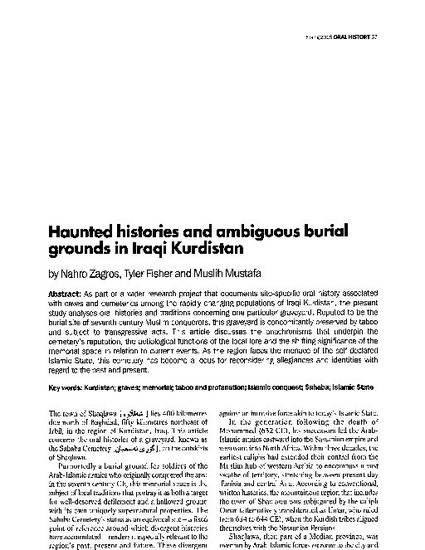
Article
Haunted Histories and Ambiguous Burial Grounds in Iraqi Kurdistan
Journal of the Oral History Society
(2016)
Abstract
As part of a wider research project that documents site-specific oral history associated with caves and cemeteries among the rapidly changing populations of Iraqi Kurdistan, the present study analyzes oral histories and traditions concerning one particular graveyard. Reputed to be the burial site of seventh-century Muslim conquerors, this graveyard is concomitantly preserved by taboo and subject to transgressive acts. This article discusses the anachronisms that underpin the cemetery’s reputation, the aetiological functions of the local lore, and the shifting significance of the memorial space in relation to current events. As the region faces the menace of the self-declared Islamic State, this cemetery has become a locus for reconsidering allegiances and identities with regard to the past and present.
Keywords
- Kurdistan,
- graves,
- memorial,
- taboo and profanation,
- Islamic conquest,
- Sahaba,
- Islamic State
Disciplines
Publication Date
Spring 2016
Citation Information
Nahro Zagros, Tyler Fisher and Muslih Mustafa. "Haunted Histories and Ambiguous Burial Grounds in Iraqi Kurdistan" Journal of the Oral History Society Vol. 44 Iss. 1 (2016) p. 37 - 46 ISSN: 01430955 Available at: http://works.bepress.com/tyler-fisher/1/
